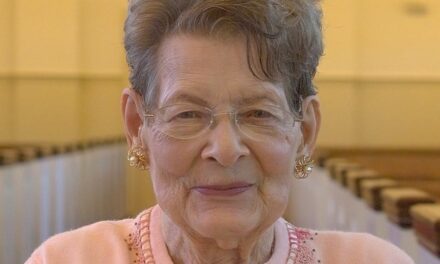In a season of well-thought out combinations of works, I can’t be the only listener who wondered in what way the three pieces presented by the North Carolina Symphony at the Meymandi Concert Hall of the Progress Energy Center constituted a coherent program, let alone a novel evening that shed new lights on the music involved. Andrew Grams is a young conductor whose biography notes that he was a protégé of Franz Welser-Möst. (I could imagine that might not be a plus, given the mediocre record of the latter with the Cleveland, and the bad smell of the orchestra’s successful push to have critic Donald Rosenberg reassigned so that he would no longer have a podium to say mean things about Welser-Most.)
His program began with the Overture to Weber’s Der Freischütz, perhaps not the most sensible choice for an opener, in that it starts piano (unlike, say, most eighteenth century symphonies which start with a bang, so as to compel the listening of the previously-conversing audience) and slowly. The initial horn theme, once there is finally some forward motion, was tentative. The overture doesn’t really swing into gear until a dark allegro (foreshadowing the pact with the Devil that is part of the plot). All in all, it is safe to say that Weber’s material is not entirely self-coherent, and Grams’ reading didn’t help to glue it together where Weber’s own composition is weak, something particular noticeable in the lack of tension in the transition to the final maggiore, where the naïve listener might have thought that the work was going to make a disheartened close in the minor. The performance did not make a strong case for more frequent performances of Weber, alas, and the audience rewarded the orchestra with unusually tepid applause.
Happily, the duo pianists Christina and Michelle Naughton brought an altogether sunnier mood to the double piano concerto, K.365, in E-flat, of Mozart. This is a relatively early work, dating to circa 1780, scored for a rather small ensemble of strings, with pairs of oboes, bassoon, and horns. The ensemble of the two keyboard players was simply superb, and the music benefited from their lovely cantabile and expressive articulation. (Oddly, there was a moment in which the accidentals in an ornamental turn were certainly wrong, leading to a most un-Mozartean harmony, and this moment recurred, so it was intentional and not just a momentary flaw.) The unusual combination of two pianos in the concerto meant that the orchestra was left with remarkably little to do, and indeed the NCS could have gotten by with half the number of players on stage. The charming closing rondo was adorned by a duo cadenza that was absolute perfection, and the Naughtons were welcomed back for a 20th-century encore, the Paganini Variations of Lutoslawski, in which they displayed a simply other-worldly level of virtuosity. This duo will go far.
The evening concluded with Brahms’ Symphony No. 1. Not everyone cares for Brahms, regardless of his assured place in the Germanic canon, and even those who enjoy other Brahms may not find this symphony to their taste. There are some who see Brahms as the inheritor of Beethoven, but Beethoven’s Italian influences meant that there is always some light to counter the German problem. The opening movement of the Brahms is simply difficult, dense, and hard to like, and Brahms has the tic of saying what he has to say twice over in the same way. Grams’ reading of the Weber had prejudiced me against his interpretation of the Brahms, at least partially because his manner on stage (in contrast to Maestro Llewellyn’s) seems unnecessarily grim. His conducting often seems too explicit, and perhaps he is just too young yet to be more economical in his technique, the sort of wily craft possessed by an older conductor who is able to connote just what is wanted with a minimum of motion. I began to warm somewhat to his Brahms by the third movement, and it is certainly the “humane” theme of the fourth movement that wins the listener in general over. Grams was rewarded with a warm ovation, but it is clear that unlike his charismatic contemporary Gustavo Dudamel, Grams still has a long road to travel before joining the upper ranks of international conductors.











